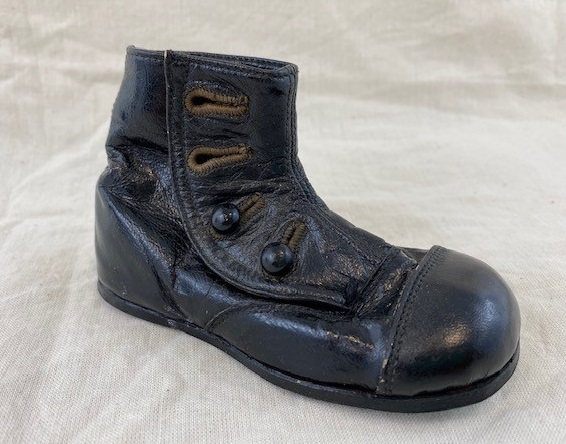by Steve Silverman

It was late morning when Detective Bailey and I arrived at the MacPherson homestead. Setting out on horseback from Toronto at the first flush of dawn, we rode northwest through the backwoods of York County, across the rolling hills of Oak Ridges, which eventually transitioned into the fertile pastures of King Township.
It was a long ride on a hot August day. The horses, parched and tired, began nickering for relief, so we stopped at ‘The Laskay Emporium’ just outside of King City to hydrate the saddlebreds. From there, we rode on to the MacPherson property, a spitting distance away.
From the main road, we followed a dirt path that led us to a clapboard farmhouse where we dismounted our horses and tied them to a hitching post beside the house. I asked Bailey to retrieve the package stored in his saddle pouch, as its contents contained crucial evidence for our investigation.
An eerie silence lingered across the farm, save for the distant whinnying of horses coming from a nearby barn.
“Inspector, I’m confused,” said Bailey. “If Angus Macpherson went missing six months ago, then whose horses do we hear in his barn?”
“Detective, I don’t have a definitive answer, but I do have my suspicions. There’s only one way to find out.”
I tried opening the farmhouse door, but it was locked, so I called out with the authority of a peace officer as commissioned by the Toronto Police Constabulary.
“This is the police. Step out of the house and identify yourself.”
Suddenly, a large imposing figure appeared behind us clutching a hayfork.
“Aye, can ah help ye?” he asked.
He was a burly man—well over six feet in height and, by my estimate, weighing fifteen stone. He looked to be in his early twenties, with a mop of thick red hair and a buffalo-horn handlebar moustache. But what concerned me was the intimidating manner in which he wielded the farm implement. Although convinced of the man’s culpability, I erred on the side of fair-mindedness and questioned him.
“Are you Duncan MacPherson?” I asked.
“Aye,” he replied.
As I expected, he was Angus Macpherson’s nephew, my prime suspect in the case.
“I beg your indulgence, Mr. MacPherson, but I’m Chief Inspector Graham, and this is Detective Bailey. We’re from the Toronto Police Constabulary.”
I figured the suspect must have deduced that, since the detective and I wore our standard-issue Toronto constabulary uniforms—black pants with brass-buttoned tunic and our badges prominently displayed. Clearly, he didn’t look pleased to see us, and the large hayfork he flourished was certainly a testament to that.
“Sorry, booot I’m busy now workin’ in the bern, mucking oot the stalls and feedin the horses. Gittin ready to turn ’em out to pasture. Kin you coom back tomorrow?” he asked with a thick Scottish brogue.
“We shan’t keep you long, Mr. Macpherson. We have some questions about your uncle’s sudden and mysterious disappearance six months ago,” I said.
“Booot ah’ve already spooken to the local King City hawkshaws aboot it.”
“We know you have, Mr. Macpherson, but we’ve collected fresh evidence and since you’re the sole heir to your uncle’s estate, it’s imperative that we talk to you further about the case. Can we go inside the house and talk?”
He opened his mouth, presumably to protest, but then stopped short of speaking. Instead, he leaned the hayfork up against the side of the house, unlocked the door and led us inside. The heat inside the house was stifling and oppressive—the ideal crucible to grill our suspect. Beads of perspiration glistened on his brow. And the more he perspired, the greater the disfiguring effect the heat had on his fair complexion, producing crimson-coloured blotches on his face.
“Steamy day isn’t it,” I said.
“Aye, hot ’nuff to scald a loon in-a loch, as mah unkyll used to say,” he answered.
And he was right, which is why I wanted to interrogate him inside the farmhouse. I read somewhere that redheads were more sensitive to extreme heat. Because it was a hot day, I wanted the suspect to feel misery and discomfort—both of which, in my policing experience, are great motivators for getting to the truth. Besides, it would allow us to gather more evidence from inside the house.
The three of us sat down at a kitchen table. From there, I noticed a gun rack stocked with shotguns, but with one gun missing. I found that suspicious since his uncle, Angus, had owned only one shotgun which he used for hunting.
“Mr. Macpherson—what do you believe happened to your uncle? Why would he suddenly disappear? Did he owe money? Have enemies?” I asked.
“Ah dinnae” he answered with a shrug of his shoulders.
“Come on lad, you’re living in his house, have the run of his property, you must have some idea,” I argued.
After deliberating for a few seconds, he answered.
“Unkyll ‘ad a coonhund, Esme, a bonny lassy she was. He looved that hund more than anything in the world. She dun won best-in-show in the Kennel Cloob. Wrote up in the papers. Picture on the front page. One day she upped’n run away. Picked up a scent and took off in the woods, ne’er come back. Unkyll went ooout many times lookin for ‘er. Ah went with him too once er twice, but he kept goin by hisself. He’d b’gone fer hours and hours. Wun day, unkyll never came baack.”
I listened to his story and thought, what rubbish. Angus Macpherson’s dog may have run away, but the rest of the story was a lie and it angered me to sit and listened to him. At that point, I gave Detective Bailey the nod to unwrap the package containing the new evidence and place it on the table.
He unveiled a man’s black button-up, leather ankle boot. The leather was degraded, caused by prolonged exposure to water and it was missing two buttons.
“Ever see this boot before, Duncan?” Bailey asked.
Duncan showed no emotion, his eyes cast a fleeting glance at the boot, then back down to the kitchen table.
“Nae,” he answered shaking his head in a back-and-forth sweep of denial.
“We found it in a swamp up in the Holland Marsh,” I said.
“It’s your uncle’s boot, lad. Look inside and you’ll find his initials—AM.”
He began to perspire profusely, fidgeting with the curly ends of his moustache. To me, this body language was a tell-tale sign of his culpability.
“You see, lad, we have a working theory about your uncle’s disappearance,” I said. “As his sole living heir, we believe you killed your uncle to expedite the inheritance of his estate because you couldn’t wait until he died of natural causes. Then, you tried to make it look like he died accidentally while searching for his dog, Esme, so you planted one of his boots in a Holland Marsh swamp as a decoy. But if that was the case, we’d have found two boots and his body instead of the one boot. Once we find the other boot, we’ll be close to solving our case.”
It was all a bluff, of course. I knew we needed more physical proof to prosecute him, but he didn’t know that.
Next, Bailey chimed in. “We also have it on good authority that you stole horses and guns from other farmers in the King area to stockpile the farm bequeathed to you.
“You may as well tell us where you hid the other boot and your uncle’s body,” I said. “It’s only a matter of time until we find all the evidence.”
At that point, with the walls closing in on him, a shroud of darkness descended upon our suspect. He completely shut down, avoided eye contact, and I knew the interrogation was over—at least for that day.
“Now, lad, go finish tending to the horses in the barn. Detective Bailey and I must head back to Toronto before nightfall. But we’ll be back with more evidence, I promise you that.”
When we left the farmhouse, I watched as Duncan walked calmly towards the Macpherson barn. Meanwhile, Bailey and I conducted a quick search of the area behind the farmhouse house. Something caught Bailey’s eye and he beckoned me over.
“Inspector, better take a look at this.”
It was an antiquated stone well, overgrown with reeds and other foliage. I peeked down the well shaft and beheld a boot floating in the sludge at the bottom, but it was too deep for us to recover without the proper tools. So Bailey and I mounted our horses to head home, and that’s when we heard it—a loud blast coming from the barn, echoing across the King countryside.
“Well, that explains the missing shotgun, Detective. What a waste of two lives. All for naught,” I sighed.
Thereupon, we turned our horses around and rode back to the barn.
